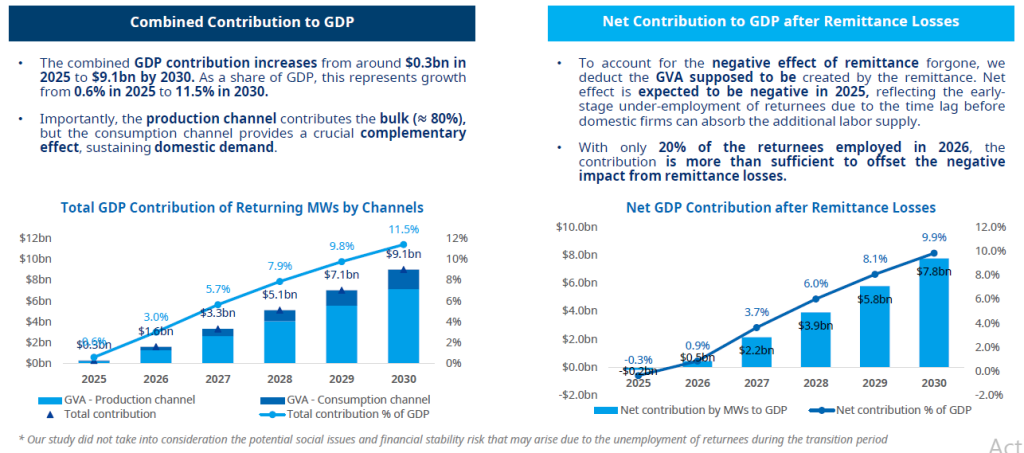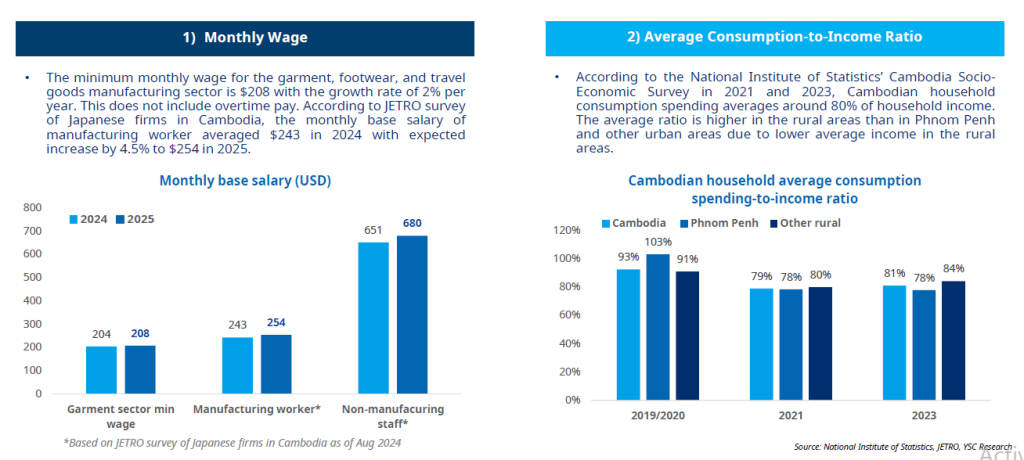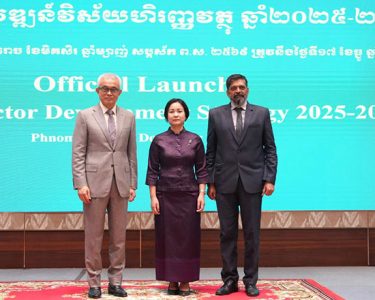Cambodia faces one of its biggest economic shocks in years as more than 750,000 migrant workers have returned home from Thailand following the July 2025 border clashes. The reversal of long-standing migration flows has cut off over $1.5 billion in annual remittances—equivalent to 1–2% of GDP—once considered a cornerstone of rural livelihoods and national consumption.
According to a new report by Yuanta Securities (Cambodia), the loss represents a serious short-term hit, but it also opens the door to a structural shift in Cambodia’s growth model. The solution, the study argues, lies in turning this returning labor force into a productive domestic asset.

From Dependency to Domestic Growth
For decades, Cambodia’s growth has been underpinned by remittance-driven consumption. With that stream disrupted, the report highlights the potential for migrant workers to fuel growth directly through production and indirectly through local spending. By joining factories, construction sites, and service industries at home, returnees could generate up to $7.8 billion annually in additional output by 2030. At the same time, their wages spent domestically could inject nearly $2 billion into the economy, considering a multiplier effect across the economy and the import leakage.
YSC Research’s modelling suggests that by 2026, the successful absorption of just 20% of returnees would be more than enough to offset the GDP losses caused by the drop in remittances. Beyond that, the gradual reintegration from 40% in 2027 to 100% in 2030 has the potential to lift GDP growth back above 7% from 2027 onwards—levels seen before the pandemic

Policy Solutions to Accelerate Reintegration
The report identifies several policy measures that could transform the return of migrant workers into a long-term growth opportunity:
- Sector-specific job creation: Expand garment, construction, and agro-processing industries.
- Public works programs: Launch infrastructure projects to quickly employ low-skilled workers.
- Private sector incentives: Offer tax breaks and wage subsidies to firms hiring returnees.
- SME financing: Provide low-interest loans to businesses employing at least 20% returnees.
- Skills certification & training: Recognize experience gained abroad and build new training hubs.
- Demand support: Introduce targeted VAT relief and extend temporary financial support for unemployed workers.

A Structural Turning Point
The return of migrant workers, the report concludes, is more than a temporary challenge. Managed effectively, it could become a catalyst for self-reliant growth, reducing external dependency and deepening Cambodia’s domestic production base. At full absorption, the reintegration of returning workers is projected to contribute nearly $8 billion to GDP by 2030.
While restoring relations with Thailand will remain important for regional labor mobility and trade, the YSC Research study emphasizes that Cambodia now has a rare opportunity: to transform a crisis into a new foundation for resilient, broad-based economic growth.






